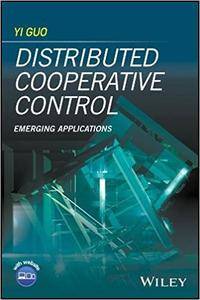

Most ebook files are in PDF format, so you can easily read them using various software such as Foxit Reader or directly on the Google Chrome browser.
Some ebook files are released by publishers in other formats such as .awz, .mobi, .epub, .fb2, etc. You may need to install specific software to read these formats on mobile/PC, such as Calibre.
Please read the tutorial at this link: https://ebookbell.com/faq
We offer FREE conversion to the popular formats you request; however, this may take some time. Therefore, right after payment, please email us, and we will try to provide the service as quickly as possible.
For some exceptional file formats or broken links (if any), please refrain from opening any disputes. Instead, email us first, and we will try to assist within a maximum of 6 hours.
EbookBell Team

0.0
0 reviewsNetworked systems are most familiar in the form of data networks connecting computers (e.g., Internet) or networks for voice communications. However, in the broader sense, networks provide the infrastructure for spatially distributed components of a system, or distributed systems, to intercommunicate, enabling powerful capabilities for cooperative and collective behaviors for the overall system. Such collective behaviors are seen in man-made systems (e.g., large power systems and transportation networks) as well as in naturally occurring systems (e.g., flocks of birds, clusters of biological organisms, and gene networks). The remarkable advances in networking technologies (both wired and wireless networks) are enabling a wide range of new, man-made systems based on sophisticated and low cost distributed components cooperating across low cost and high-speed data networks. Also, the availability of new tools and the development of new techniques in handling multi-scale systems (from micro aerial vehicles to nanoparticles) give unprecedented opportunity for breakthroughs in controlling realworld networked systems.
Cooperative control of multi-agent systems has experienced rapid development during the past few decades. Distributed consensus algorithms received much research attention, and cooperative control of multi-vehicle systems have been extensively studied extending information consensus to coordinated motions of autonomous vehicles. Due to domain specifications and system constraints, applications found in realworld systems pose new challenges to cooperative control. The richness of realworld problems and diverse application domains revitalize the field and stimulate new research directions.